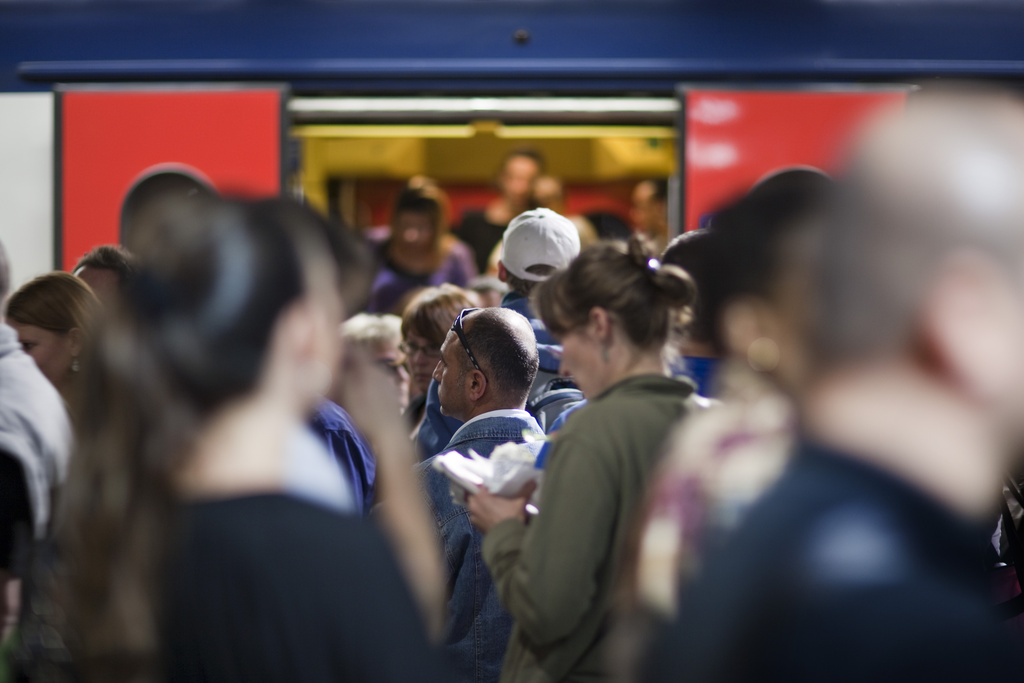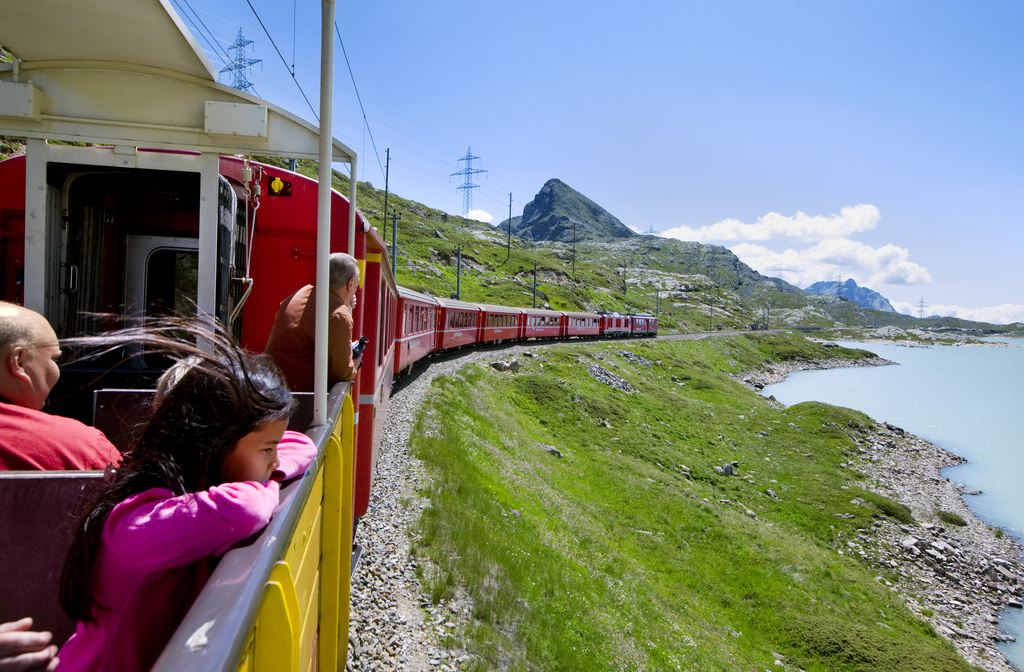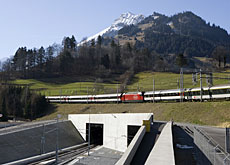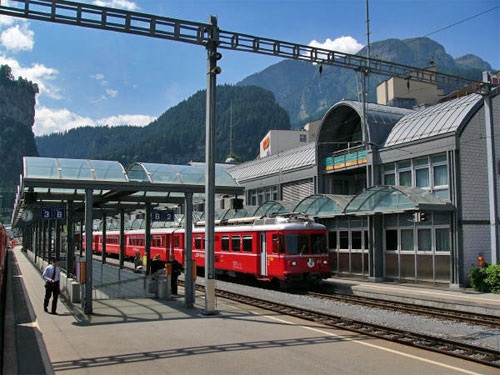Swiss trains are victim of own success

Despite the excellent reputation of Swiss public transport, rush-hour overcrowding may lead the authorities to make tough decisions that will not be popular.
Raising the ticket price during peak hours is one of the solutions on the table, while another is an expansion of services offered by the Swiss Federal Railways.
A typical day begins badly for many commuters. Seats are often only available for people who are lucky enough to get on the train at the first station.
And in the biggest Swiss cities, like Zurich and Geneva, the trams can be so crowded that it’s even considered a privilege to get inside the door, instead of having to wait for the next one to come along.
Half of the 900,000 customers who take Swiss trains every day do so during morning and evening rush hour, according to Alessandro Malfanti, spokesman for the Federal Railways.
“By 2030, demand will increase by 50 per cent, and by 100 per cent in the urban centres around Zurich and along the Lake Geneva corridor,” Malfanti said.
However, public transport expert Ulrich Weidmann says overcrowding at rush hour is nothing new in Switzerland.
“What’s new is the increase in commuters travelling long distances, such as between Zurich and Bern [125km] and Geneva and Lausanne [63km],” the professor at Zurich’s Federal Institute of Technology (ETHZ) told swissinfo.ch.
Lifestyle
This change in lifestyle, Weidmann added, is a consequence of the introduction of significant reforms as part of the Rail 2000 project, which has led to more frequent and better connections between towns and cities.
The Public Transport Association is looking at various solutions to resolve the problem. The umbrella group, which includes the Federal Railways as its largest member, is considering granting retired people discounts only for journeys starting after 9am or revising the entire public transport tariff system.
The latter is being investigated by a research team at St Gallen University. The experts are not excluding higher prices in general for rush hour trains. But the team’s Christian Lässer says this rise would be less for regular commuters than for occasional travellers.
While the findings of the university study will not be published until later in 2011, in an interview with the Le Matin newspaper, Lässer made his disapproval clear of people travelling unnecessarily during rush hour.
This same goes for Weidmann, pointing to pensioners in particular. “We shouldn’t only blame them – everyone has the right to travel. And how do you decide which journey is important and which is not? Many pensioners must, for example, go to the doctors [at a pre-determined time].
No choice
Weidmann does not think it is possible to influence the demand or encourage people to use the train at less busier times of the day. “In Zurich, people work fixed hours. They don’t have a choice,” he said.
He says the solution lies at the technical and operational level. “We need to be able to change the services offered by the railways and increase train frequency and passenger capacity on the busiest lines,” Weidmann said.
However he adds that it will not be easy implementing such changes in the current system since the timetable introduced as part of Rail 2000 integrates all rail and bus services across the country.
“The result is a very rigid and interconnected system in which it is difficult to make specific changes such as increasing the frequency of trains at certain times of the day or on well-defined routes.”
Malfanti of the Federal Railways says political considerations must also be taken into account when discussing how to cope with passenger increases, since the Federal Railways are state owned.
It is parliament which decides on financing of rail infrastructure. The railways spokesman says this will be “one of the biggest challenges facing Switzerland in the years to come”.
The discussion on the future of public transport will focus on the price of train tickets and rail passes. According to the experts, prices are too low.
“They could be at least 15 per cent higher,” Weidmann believes, concluding that such a move would not risk alienating rail passengers.
“Only a minority of them would choose to commute by car instead since parking is a problem in urban centres and trains are the fastest means of travelling between cities.”
The Swiss are the world champions when it comes to taking the train – last year they travelled on average 2,422 km per person by rail, according to figures of the Swiss Information Service for Public Transport at the end of September. These drew on International Union of Railways figures for 2008.
This is 300km more than in 2007. Only the Japanese come close to the Swiss total at 2,010km, with France in third place at 1,377km. Trains are least used in Lithuania at only 112km per person in 2008.
The Swiss top the European list in terms of number of times the train is taken, at 50 times per annum. The Japanese lead the world rankings at around 70 times a year.
In 2009 the Swiss Federal Railways transported 327.5 million passengers and 50 million net tonnes of freight.
88.2% of all customers reached their destinations on time or less than three minutes late. In 2008, the company achieved a figure of 85.4%.
Despite the economic downturn caused by the global financial crisis, the company result was SFr369.8 million ($388.6 million) in 2009, compared with SFr345 million in the previous year, it was announced in April 2010.
The Federal Railways said the financial result was encouraging but the figures had benefited from a number of one-off factors – notably proceeds from the sale of real estate.
(Adapted from Italian by Dale Bechtel)

In compliance with the JTI standards
More: SWI swissinfo.ch certified by the Journalism Trust Initiative














You can find an overview of ongoing debates with our journalists here . Please join us!
If you want to start a conversation about a topic raised in this article or want to report factual errors, email us at english@swissinfo.ch.